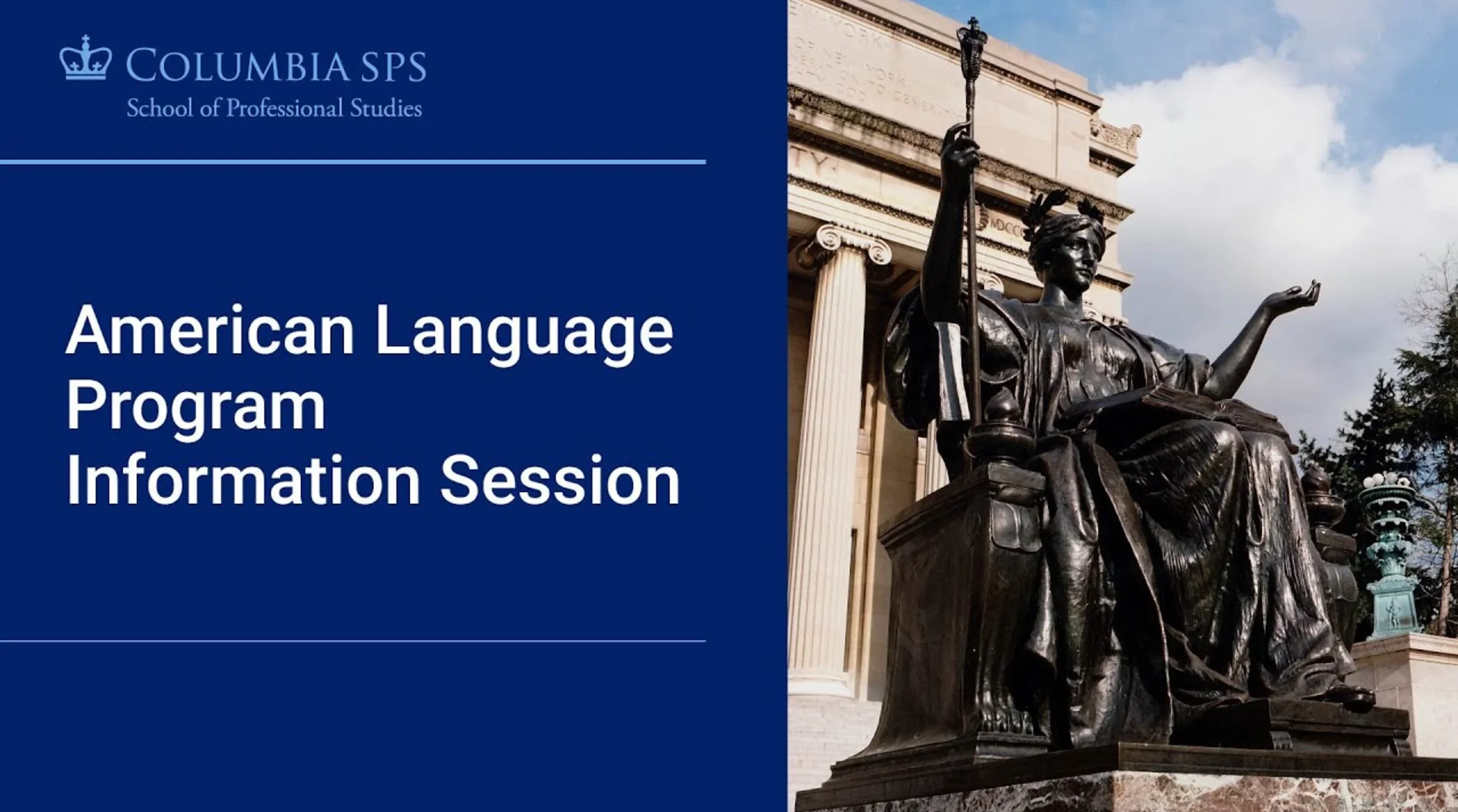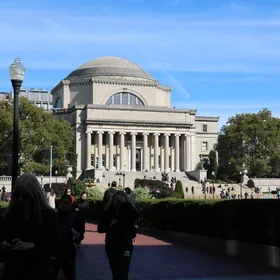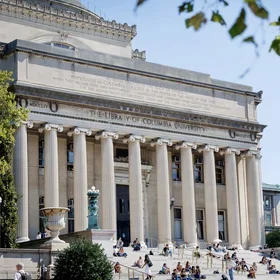In a “super-diverse” society, where speakers of English as a lingua franca come from around the world and speak with different accents, the “error correction” model of English teaching should be reconsidered. That was a key recommendation of Dr. Martin Dewey’s plenary address at the Columbia University School of Professional Studies American Language Program (ALP) Winter Conference, which was held on the theme of “Evolving English: Changes in Teaching and Learning” this past semester.
The ALP Winter Conference is a professional development event for practicing language educators, researchers, and graduate and doctoral students aimed at enriching their pedagogical practice in teaching. Although the presentations are primarily focused on English-as-a-second-language (ESL/TESOL/ELT) education in academic settings, educators teaching other languages or in other educational contexts may find them relevant and applicable to their teaching.
Dewey, associate professor at King’s College, London, researches linguistic and cultural diversity in educational settings, questioning the normativity that underpins language practices in English-language teaching. His presentation, titled “The value of critical thinking in a changing landscape: Resisting normative bias and divisive discourse in support of diversity and multilingualism,” focused on the question “As English changes, how do English Language Teaching (ELT) practitioners’ awareness of language, professional knowledge, and the sociocultural setting in which practices take place [need to] change?”
“In teacher education, language awareness has been undertaken from a deficit perspective––focusing on identifying linguistic gaps or language problems that students have,” Dewey said. He added that this training for teachers tends to result in a “corrective mindset,” in which students are told how their grammar or pronunciation is wrong.
Throughout his remarks, he highlighted the limitations of this method of language teaching, particularly given the current reality that English is spoken fluently—even natively—by a range of speakers whose speech patterns or accents sound quite different from the speech of “prestige” native speakers from countries like the U.S. and U.K.
Despite some recent efforts to “decolonize” English-language teaching, the rise of populist backlash to multilingualism and multiculturalism threatens to undo strides made. Dewey cited a positive example of decolonization as the expansion of a curriculum that focused on landscape painting from exclusively Western works to also include Chinese art. At first, students were only allowed to use English-language sources, but eventually the assignment guidelines were opened up to allow for the use of Chinese-language texts.
On the flip side, he warned that with anti-migration movements, we were entering “a situation where complexity is not tolerated.” Dewey offered the example of backlash toward bilingual English-Bengali signage at a London Underground station in a neighborhood with a large Bengali population. This recent push to encourage monolingual English signage stands in contrast to the silence around the use of the French language on signs for the Eurostar in London.
Another potential threat to linguistic diversity is AI. While AI has been shown in some studies to support second-language speakers of English––helping students improve their academic writing and giving them more room to express creativity, since the language barrier is lower––it may also deepen some inequities. The large language models (LLMs) that the AI is trained on use text samples that display gender, race, and cultural biases, and there may be unequal access to AI and other emerging tech. These factors may begin to undo recent gains in decolonizing ELT curricula and practices.
Following Dewey’s remarks, speakers from the ALP discussed a variety of topics. Babi Kruchin, ALP senior lecturer, presented on “Posthumanism,” a theoretical approach and philosophical framework that complements traditional teaching and learning. Brittany Ober, ALP senior lecturer, discussed new research and ideas related to “English as a Medium for Instruction.” ALP lecturers Carolyn Dunn and Lydia Fass gave a session on the challenges of teaching mixed-level language classes and provided helpful practical techniques for instructors teaching in similar contexts. ALP associate Yasmeen Coaxum presented on using AI to “unlock” authentic texts with low-intermediate students.
“The ALP Winter Conference has always been an event that we hope provides our close-knit professional community a chance to get together and learn about different topics in the field,” said Mary Pickett, executive director of ALP. “We hope that attendees leave with both new theoretical knowledge and practical classroom applications.”



